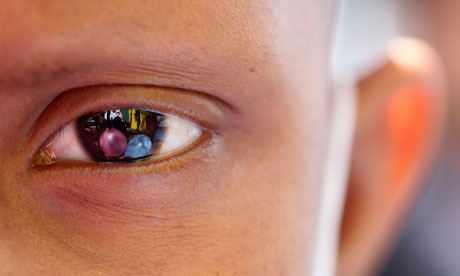The rampant capitalism that has brought the market into every corner of society needs to be reined in

‘Financial calculation evaluates everything in pennies and pounds, transforming the most basic goods – above all, housing – into "investments".’ Photograph: Peter Macdiarmid/Getty Images
The mature economies of the modern world, particularly the United States and Britain, are often described as "financialised". The term reflects the ascendancy of the financial sector. Even more important, it conveys the penetration of the financial system into every nook and cranny of society, including housing, education, health and other areas of life that were previously relatively immune.
Evidence that financialisation represents a deep transformation of mature economies is offered by the global crisis of 2007-09. The crisis originated in the elephantine US financial system, and was associated with speculation in housing. For a brief period it led to serious questioning of mainstream economic theory and policy: how to confront the turmoil, and what to do about the diseased financial system; are new economic theories needed? However, after six years it is clear that very little has changed. Financialisation is here to stay.
Consider, for instance, the policies to confront the crisis. First, public funds were injected into banks to boost capital. Second, public liquidity was made available to banks to sustain their operations. Third, public interest rates were driven to zero to enable banks to make secure profits by lending to their own customers at higher rates.
This extraordinary public largesse towards private banks was matched by austerity and wage reductions for workers and households. As for restructuring finance, nothing fundamental has taken place. The behemoths that continue to dominate the global financial system operate in the knowledge that they enjoy an unspoken public guarantee. The unpalatable reality is that financialisation will persist, despite its costs for society.
Financialisation represents a historic and deep-seated transformation of mature capitalism. Big businesses have become "financialised" as they have ample profits to finance investment, rely less on banks for loans and play financial games with available funds. Big banks, in turn, have become more distant from big businesses, turning to profits from trading in open financial markets and from lending to households. Households have become "financialised" too, as public provision in housing, education, health, pensions and other vital areas has been partly replaced by private provision, access to which is mediated by the financial system. Not surprisingly, households have accumulated a tremendous volume of financial assets and liabilities over the past four decades.
The penetration of finance into the everyday life of households has not only created a range of dependencies on financial services, but also changed the outlook, mentality and even morality of daily life. Financial calculation evaluates everything in pennies and pounds, transforming the most basic goods – above all, housing – into "investments". Its logic has affected even the young, who have traditionally been idealistic and scornful of pecuniary calculation. Fertile ground has been created for neoliberal ideology to preach the putative merits of the market.
Financialisation has also created new forms of profit associated with financial markets and transactions. Financial profit can be made out of any income, or any sum of money that comes into contact with the financial sphere. Households, for example, generate profits for finance as debtors (mostly by paying interest on mortgages) but also as creditors (mostly by paying fees and charges on pension funds and insurance). Finance is not particular about how and where it makes its profits, and certainly does not limit itself to the sphere of production. It ranges far and wide, transforming every aspect of social life into a profit-making opportunity.
The traditional image of the person earning financial profits is the "rentier", the individual who invests funds in secure financial assets. In the contemporary financialised universe, however, those who earn vast returns are very different. They are often located within a financial institution, presumably work to provide financial services, and receive vast sums in the form of wages, or more often bonuses. Modern financial elites are prominent at the top of the income distribution, set trends in conspicuous consumption, shape the expensive end of the housing market, and transform the core of urban centres according to their own tastes.
Financialised capitalism is, thus, a deeply unequal system, prone to bubbles and crises – none greater than that of 2007-09. What can be done about it? The most important point in this respect is that financialisation does not represent an advance for humanity, and very little of it ought to be preserved. Financial markets are, for instance, able to mobilise advanced technology employing some of the best-trained physicists in the world to rebalance prices across the globe in milliseconds. This "progress" allows financiers to earn vast profits; but where is the commensurate benefit to society from committing such expensive resources to these tasks?
Financialisation ought to be reversed. Yet such an entrenched system will never be reversed by regulation alone. Its reversal also requires the creation of public banking that would operate with a new spirit of public service. It also needs effective controls to be applied to private banking as well as to international flows of capital. Not least, it requires new methods of meeting the financial requirements of households, as well as of small and medium enterprises. There is an urgent need for communal and associational ways to provide housing, education, health and other basic goods and services for working people, breaking the hold of finance on everyday life.
Ultimately, financialisation will not be reversed without an ambitious programme to re-establish the superiority of the social over the private, and the collective over the individual in contemporary society. Reversing financialisation is about reining in the rampant capitalism of our day.










